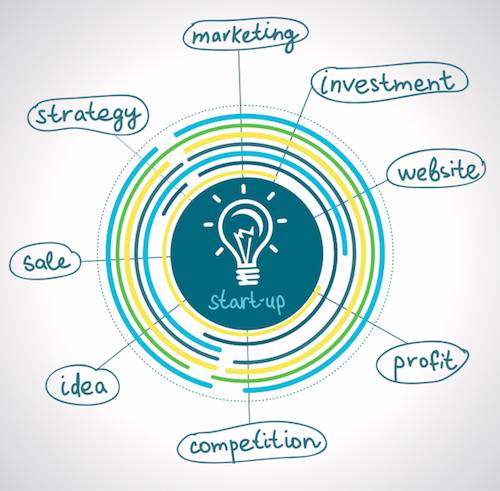
Hypemarks was a Los Angeles social sharing startup that after about a year of failing to gain traction and turn a profit, changed course, moved to San Francisco and became Tint, an embeddable social-feed service.
The story of pivoting direction is common in the U.S. start-up world. But what’s different about this story are the players involved. One of the company’s four employees, its software engineer, is not an American citizen. He works legally in the country on a student visa. But if he were to lose his job, the developer would face the prospect of being forced to return to his native India, relinquishing his toehold in the States.

While the fate of startups like Tint are yet to be determined, the status of their foreign-born nationals could be solidified should the third iteration of the new Startup Act become law. The proposed bill would plug a brain drain causing the U.S. to fail to retain some of the best minds its universities educate.
Startup Act Update No Sure Thing
The road from proposal to legislature is full of potholes. Introduced by Senator Jerry Moran (R-Kan.) a few weeks ago, this is the third attempt of the bill, which Senator John Kerry (D-Mass.) introduced in 2010. That version failed to gain traction, as did a 2011 proposal that didn’t get far either.
To be eligible to receive an extended visa under this bill, a candidate would have to be an H-1B non-immigrant worker or F-1 student visa holder, already raising at least $100,000 in funding at their startup, and must employ at least two people (should they be the proprietor or principal). With those visas, workers would then be able to stay in the U.S. for up to three years. Also available is a new five-year visa for students studying STEM fields (science, technology, engineering, math), allowing an easier road to legal residency.
Beyond visas, the bill’s second major incentive for startups is a series of tax breaks, specifically a research and development credit for companies less than five years old and with less than $5 million in annual receipts — a move geared toward helping companies expand and hire.
Weighing In
Startups are estimated to face more than a 90% failure rate. While this bill isn’t a cure all for the challenges of building a new digital business, many in the community believe it could help spur innovation and open the door to an estimated 75,000 new entrepreneurs.
The immigration debate has always been polarizing, making it easy to forget that this country was birthed by foreigners searching for a better life. Howard Marks, the co-founder of game giant Activision, and the current co-chair at the Los Angeles accelerator Start Engine, was born in Santa Monica to European parents, grew up in France and came back to the states for college. He retains both French and British citizenship. Marks thinks the bill would spur innovation and growth and encourage the retention of a very talented crop of foreign-born entrepreneurs.

“Our country is founded on entrepreneurs, especially those who come from abroad and are looking to live the American dream,” Marks says. “We need it badly. To remain competitive, we need more engineers and scientists. We are not getting enough from our own citizens.”
Jeff Solomon, the co-founder and executive director of Amplify.la, a Venice, California-based accelerator, agrees that the bill could be a shot in the arm for businesses -as long as the tax breaks and visas aren’t tied up behind too much red tape. “Absolutely it would make an impact,” Solomon says.
While neither Marks or Solomon think the bill will significantly curb the sharp failure rate of startups, that’s not really the issue. “Most entrepreneurs go through failed startups before they succeed,” Marks noted. “I do not think we need to fix that. Most entrepreneurs who are tenacious and resourceful will succeed at some point.”
Not everyone is a fan of giving benefits to foreigners, of course. Aaron Abram, the co-founder and vice president of business development for the mobile research service OSURV, says we should be focusing on giving benefits to our citizens. “Shouldn’t the focus be on giving incentives to people already in America,” Abram asks. “There are plenty of talented Americans who shift away from entrepreneurship because the current government is punishing them with high taxes.”
Tint’s Story
For Tint, founder and chief executive Tim Sae Koo says his focus is building a strong team. And with only four members, including himself, keeping and growing that team is vital – which makes any residency issues a big potential problem. If Sae Koo was confident foreign nationals could attain visas with this new program, he says, he’d have more confidence to hire them and expand.

“That has been a big struggle for us and a constant headache,” Sae Koo explains. “If I want to hire them onto our team, it feels like a dark cloud looms over my head because I think of all the time, paperwork and troubles I will have to go through to sponsor their visa.”
Sae Koo says his engineer is really excited about the bill. But the situation is far from finalized. And should the engineer lose his ability to legally work in the U.S., he could take the route of many entrepreneurs turned away from this country and end up operating a business in his home country.
We have to find a way to legally keep these talented people, Sae Koo says. Because at the end of the day, we in the U.S. are missing out on innovation and growth without them.
“I just shake my head and think of the lost opportunity the U.S. could have benefited from them, like more jobs and growth in the economy,” he says.
Lead image courtesy of Shutterstock.

















